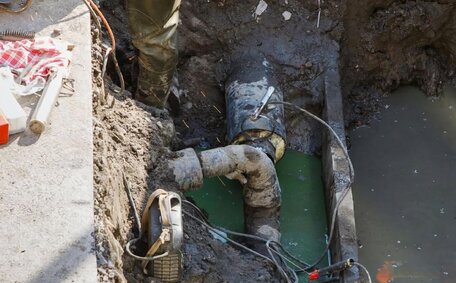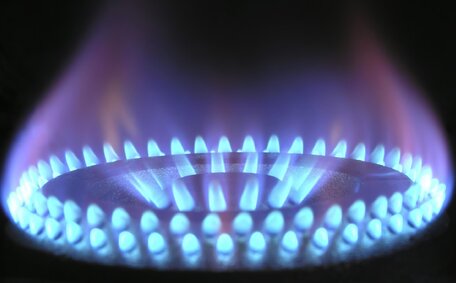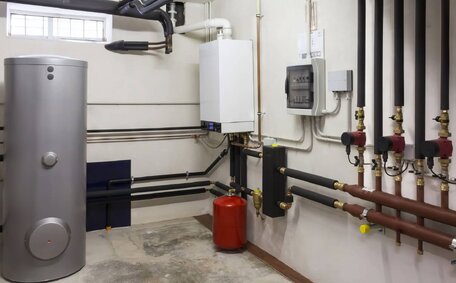
Sump Pump Failure Solutions
Sump pumps fail due to power outages, clogs, frozen pipes, and more. Prevent water damage by understanding causes and contacting plumbers for solutions to extend pump life.
Read MoreBoth landlords and tenants in rental properties must grasp their emergency plumbing obligations as outlined in their tenancy agreements and relevant laws. Tenancy agreements and residential tenancy laws clarify the distinct responsibilities of landlords and tenants concerning specific plumbing repairs and maintenance.
This article outlines emergency plumbing scenarios and delineates roles and responsibilities for tenants and landlords. We’ll also explain routine plumbing maintenance duties.
Having clarity around your plumbing responsibilities as a tenant or landlord in Cronulla can help ensure issues get resolved promptly, preventing further property damage or loss of essential services. Understanding standard procedures for plumbing emergencies can mitigate stress and conflict regarding repair costs.
When it comes to plumbing issues in rental properties, it’s important to understand the difference between emergency and non-emergency problems. Emergencies may consist of burst pipes, gas leaks, blocked sewer drains, and complete loss of water or hot water supply.
Emergency plumbing scenarios require urgent attention to prevent property damage or risks to health and safety.
Non-emergency plumbing problems typically involve less critical issues such as leaky taps, a blocked toilet, or a partially obstructed sink drain. While inconvenient, these issues do not pose immediate threats and repairs can typically be scheduled during standard maintenance.
Identifying whether a plumbing issue is an emergency determines tenants’ actions and clarifies responsibilities for urgent repairs. As a tenant, being able to recognise emergency plumbing scenarios can help ensure you notify your landlord or property manager right away as needed.
Lease agreement for rental properties in Cronulla, Sydney typically delineate maintenance responsibilities, reflecting the agreed amount of rent, between tenants and landlords. Under the Residential Tenancies Act, landlords must provide and maintain premises in reasonable repair, ensuring properties are safe, secure, and suitable for habitation.
This means landlords must address emergency plumbing repairs like burst pipes, gas leaks, or ensure the restoration of any interrupted essential service. Landlords are also accountable for non-urgent repairs, such as water heater breakdowns or drain blockages necessitating professional hydrojetting services.
Meanwhile, tenants are usually responsible for basic household maintenance, which entails being diligent to take care of kitchen sinks, replacing smoke alarm batteries, cleaning drains and attending to minor leaks they or their guests cause.
Responsibility for specific plumbing repairs may also vary based on lease contingencies regarding damage liability and established precedents from past maintenance requests.
As a tenant, it’s crucial for your tenancy that you know how to respond in the event of a plumbing emergency in your rental property. Your primary duty is to immediately inform your landlord or property manager of the emergency.
If faced with an emergency like a burst pipe, gas leak, or a sudden loss of gas electricity, you’ll also need to take urgent action to prevent injury or further property damage. This includes:
Contact your landlord without delay to ensure they and anyone else nominated as emergency contacts are duly informed as per your rental agreement.
Should you fail to reach your landlord, persistently follow up by phone, text, and email, ensuring all efforts are documented. You can also get assistance by contacting your local property management or real estate agent if one is managing the rental.
In some instances, tenants may have to arrange for emergency plumbing repairs before the landlord can respond, such as calling a 24-hour plumber. Keep receipts to submit for reimbursement. Damages caused by the tenant or their guests fall into the domain of their own responsibility.
Landlords are legally compelled to promptly address urgent plumbing repairs and maintenance issues. The Residential Tenancies Act mandates that landlords must respond to emergency plumbing issues within 24-48 hours, swiftly conducting repairs to restore functionality.
This includes fixing damaged pipes, sealing gas leaks, clearing sewer overflows, or restoring lost essential services. As a property owner, organising and paying for qualified tradespeople to undertake emergency repairs maintenance is your responsibility to restore essential plumbing services and prevent further property damage.
Beyond urgent repairs, landlords have an ongoing duty to proactively carry out repairs and maintenance on plumbing systems in reasonable working order during tenancy. Tasks include annual servicing of water heaters, clearing drain blockages due to wear or accidents, repairing leaky taps, and performing safety checks on gas appliances.
Neglecting essential plumbing maintenance can put tenants at risk and lead to expensive emergency repairs. Staying on top of issues and conducting preventative maintenance is key to upholding your obligations as a landlord.
If tenants report an emergency plumbing issue, you must respond and start organising repairs at once. Keep tenants updated on timeframes and ensure repairs done are communicated promptly. Approve any reasonable out-of-pocket expenses tenants may have incurred dealing with the emergency in your absence.
Swift action on urgent repairs and transparent communication with tenants are vital. If significant delays leave tenants without essential services, they can apply tribunal to formally direct landlords to undertake repairs.
Tenants who incur out-of-pocket costs addressing emergency plumbing issues may be eligible for reimbursement for reasonable expenses.
If the emergency repair was the clear responsibility of the landlord under the tenancy agreement, tenants should keep receipts and document their attempts to contact the landlord when submitting a reimbursement request.
If tenant negligence, like an overflowing tub clogged with hair, causes an emergency, the tenant could bear the repair costs.
Likewise, pre-existing problems tenants were previously aware of but tenant fails to report in a timely way are unlikely to qualify for landlord reimbursement if urgent repairs then become needed.
The landlord does have the expectation to promptly reimburse tenants for legitimate emergency plumbing expenses during the allowed timeframes while urgent repairs addressing the underlying issue take place.
Following up over email to formally request reimbursement with supporting documentation is advisable once plumbing work is completed. If issues arise, state Fair Trading agencies can assist in recovering valid costs.
As a tenant, there are several proactive steps you can take to help avoid plumbing emergencies and issues in your rental property:
Perform monthly self-inspections of your plumbing fixtures and drains.
Check under sinks for any signs of leaks or water damage. Check that toilet flushing mechanisms operate effectively. Flush out less frequently used drains with water to prevent blockages.
Prevent drain clogs with weekly hot water and baking soda flushes for your sinks and showers. Use plastic drain catchers to trap hair and debris and keep drains clear. Refrain from disposing of fats and harsh chemicals via drains.
Immediately report any leaks or potential plumbing problems to your landlord or property manager. Minor problems can turn into emergency situations if left unaddressed. Do not dismiss issues as mere wear and tear.
Prevent drain overloading by ensuring only suitable items are flushed or washed down. Use trash cans to dispose of things like hair, greases and solids which can cause obstructions if flushed.
Following these handy maintenance tips and reporting issues early can prevent plumbing emergencies. But ultimately, landlords are responsible for plumbing repairs of serious problems in rentals.
Fostering a cooperative relationship in the landlord tenant dynamic is key to effectively dealing with plumbing issues and expenses in rental properties. Clear communication, especially about repairs, prompt reporting of maintenance needs and respect for property responsibilities outlined in tenancy agreements sets the foundation.
As a Cronulla landlord, being responsive to tenant reports of leaks, blockages or breakdowns can help prevent minor problems from becoming urgent issues. Attending to repairs promptly also builds goodwill and is part of the landlord’s duty responsible maintaining premises suitably.
Likewise, tenants clearly conveying plumbing problems early and granting access for repairs upholds their duty of care. Reasonable caution to avoid negligent damages or drain blockages also keeps maintenance costs down.
In cases where emergency plumbing and repairs are unavoidably required, landlords and tenants should collaboratively handle logistics like technician access or reimbursements. Excellent documentation and open dialogue ensure plumbing concerns are addressed efficiently and fairly.
Ultimately, landlords and tenants sharing a mindset of open communication and accountability regarding property maintenance fosters effective collaboration. This prevents much stress, uncertainty and expense when plumbing issues inevitably arise.
Sump pumps fail due to power outages, clogs, frozen pipes, and more. Prevent water damage by understanding causes and contacting plumbers for solutions to extend pump life.
Read MoreIf your monthly gas bill rises suddenly for no clear reason, the cause could be a gas leak from old pipes or appliances. Contact your provider to investigate.
Read MoreScale buildup reduces the efficiency of hot water systems over time. Regular descaling helps remove this. Flush your system with vinegar or a descaling solution.
Read MoreCronulla, 2230 NSW
We will call back as soon as possible.




